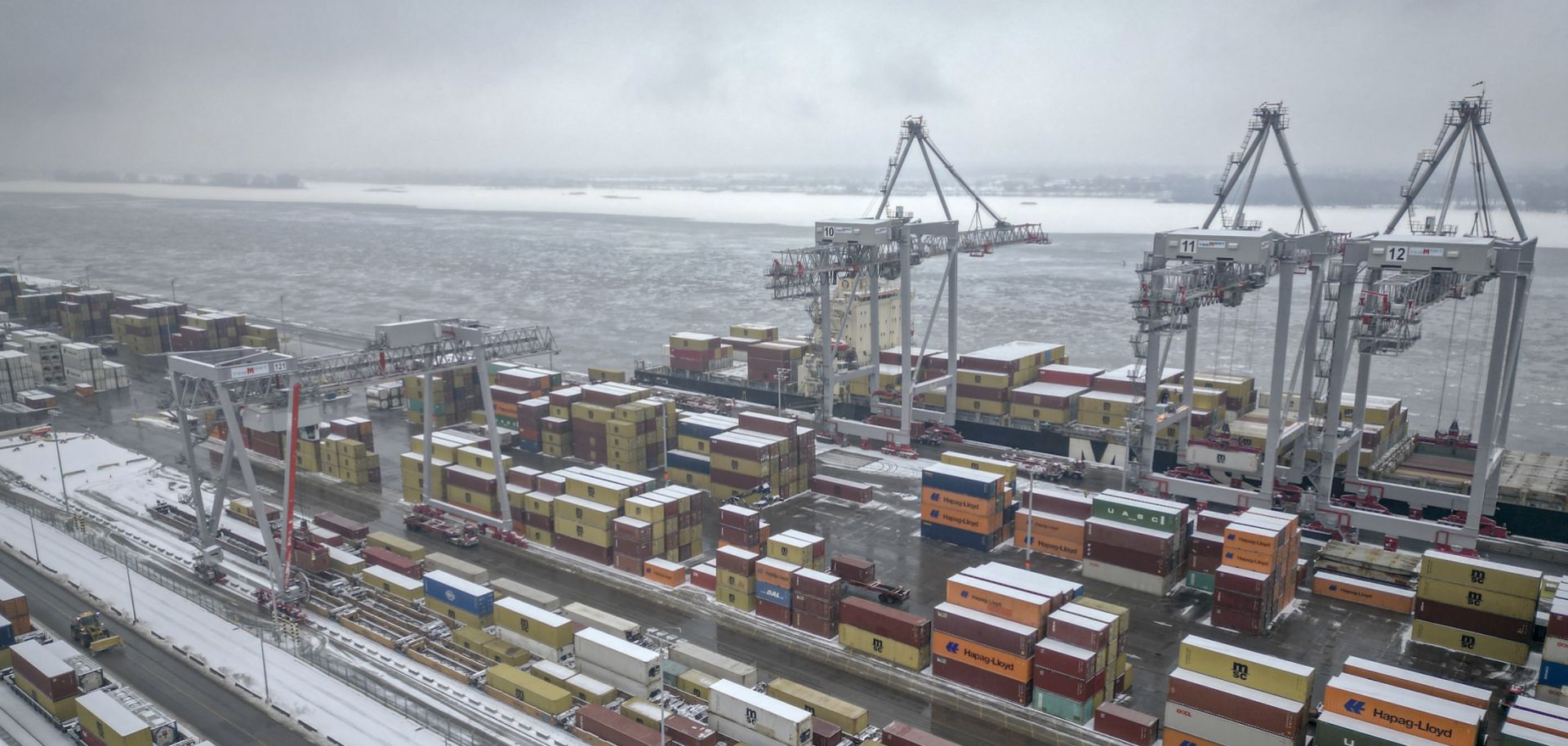If implemented, sustained U.S. tariffs on Canada and Mexico would undermine North American economic growth and integration, and the White House's apparent willingness to accept these costs increases the likelihood that its other large tariff proposals are implemented, even if Canada and Mexico temporarily avoid them. On Feb. 3, Mexican President Claudia Sheinbaum and U.S. President Donald Trump announced that Mexico City and Washington agreed to pause tariffs on each other for one month. Trump spoke with Canadian Prime Minister Justin Trudeau later on Feb. 3 and may announce a similar deal between Ottawa and Washington before tariffs go into effect at midnight. The last-minute negotiations came after Trump on Feb. 1 signed an executive order imposing 25% tariffs on virtually all Canadian and Mexican goods and 10% tariffs on Chinese goods, effective at midnight on Feb. 4, ostensibly over unauthorized immigration and fentanyl drug flows. In response to the...

